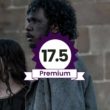Before TIFF begins, we’ve put together a list of the best films of 2019 so far with links to our more in-depth coverage.
10. The Fireflies are Gone (dir. Sébastien Pilote)
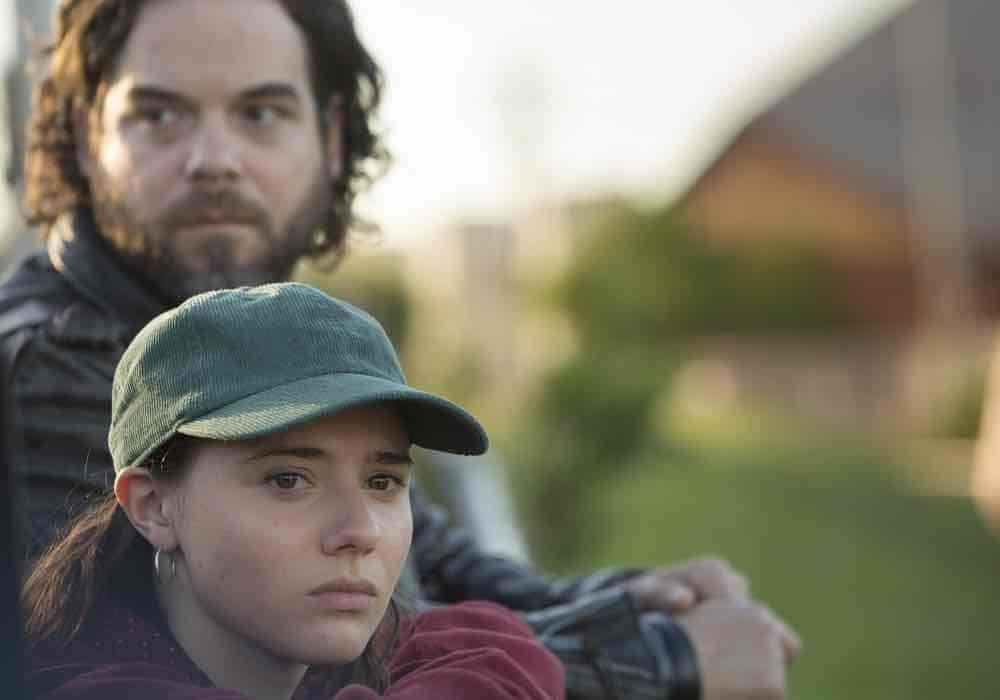
Sébastien Pilote’s third feature is a buoyant, colourful, and often very funny coming-of-age story about a clever and cynical teenager, Léo (the wonderful Karelle Tremblay), who is coping with her parents’ divorce. To make matters worse, her new stepfather is a pompous right-wing talk radio host (“the king of the airwaves”) who helped to chase her father, the former union leader, out of town. To avoid her own problems, Léo strikes up a friendship with a middle-aged guitar teacher, which proves tender without ever problematically crossing boundaries. Tremblay’s Léo is a complex and uncommonly intelligent female protagonist, which puts Fireflies are Gone in the league of great teen films like Juno or The Edge of Seventeen. But Pilote’s interest in the complexities of the adults in Léo’s life, and the changing landscape of the town paints a broader picture beyond the confines of Léo’s teenage perspective. — Alex Heeney
Further reading: Our interview with director Pilote and star Tremblay appears in our ebook The 2019 Canadian Cinema Yearbook, which you can pre-order here.
Listen to our Best Canadian Films of 2018 podcast for our discussion on the film with special guest Justine Smith.
Where to watch: Available on VOD (iTunes, YouTube) in Canada. Still seeking distribution in the US and UK.

9. Animals (dir. Sophie Hyde)
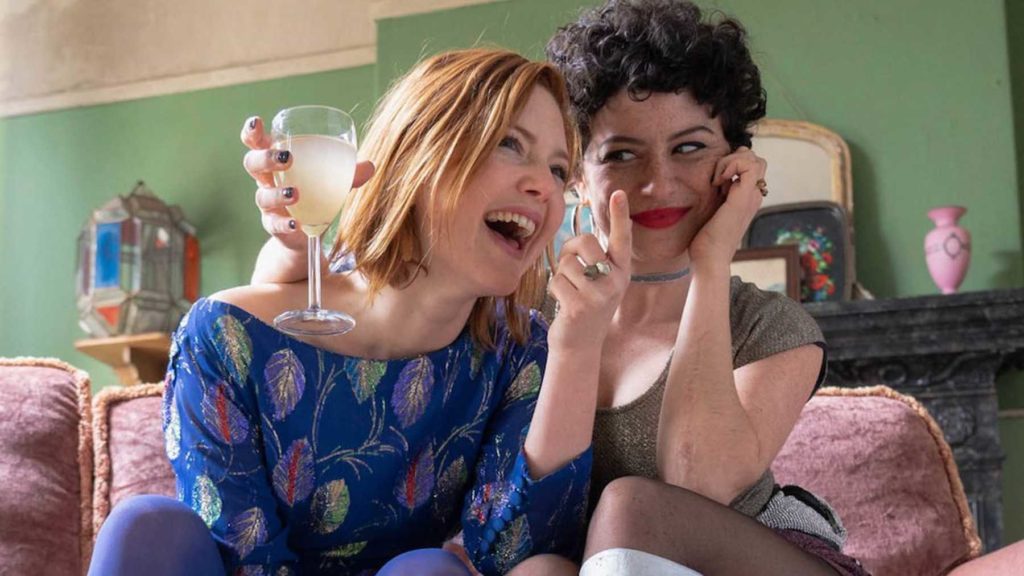
Animals is a complex, messy, wildly ambitious film that left me unsure of what to think. But it stuck with me; this tale of toxic female friendship, stunted creativity, and the move from one stage of your life to the next is full of passionately expressed ideas. It may not be polished, but it has a lot to give.
Holliday Grainger and Alia Shawkat are a dynamic pair as flatmates Laura and Tyler. They live a hard-partying lifestyle in Dublin: glamorous women by night, and hungover wrecks by morning. Grainger is a compelling lead, and Laura’s arc — a party girl who learns to grow up and settle down — is a valuable one, and Hyde is constantly complicating it. Laura thinks she has to change her life from one extreme to another, but she’s only happy when she realises that, actually, there’s an in-between. She finds her place in that middle ground. — Orla Smith
Further reading: Read Orla’s interview with director Hyde here, and her full-length review from Sundance London here.
Where to watch: Animals was released in cinemas in the U.K. last month, and will likely be available on VOD in the U.K. soon. Plans for a North American release are still TBA.
8. The Chambermaid (dir. Lila Avilés)
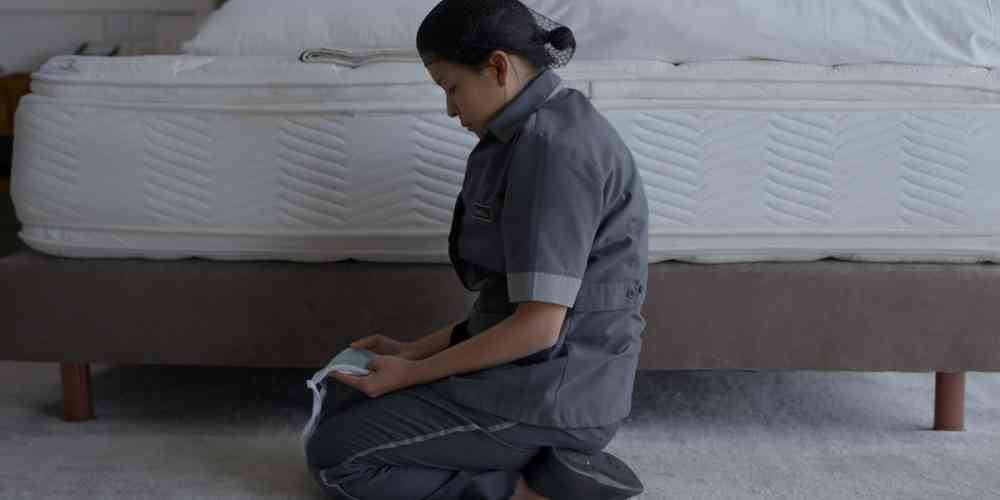
Lila Avilés’ debut film asks us to see an occupation hotels try to make invisible: maids. Eve (Gabriela Cartol) is a young single mother who dedicates herself to her job as a maid at an upscale hotel in hopes of gaining a favourable promotion to the luxury floor. The entire film enfolds within the glass tower of the hotel, the camera exploring both the opulence of the public side and the grunginess of the maintenance and cleaning floors. Often told through long takes, The Chambermaid emphasizes the simultaneously alienating and highly personal experience of cleaning up other people’s mess. But even when maids and guests interact, as is the case when Eva is asked to watch a rich Argentinian woman’s baby for a few minutes, no human bond develops. The rich woman’s expectation of the role leaves her incapable of seeing Eve as a person, instead of as a maid. Avilés challenges us to look beyond the uniform and pay close attention to the lives of workers cleaning up the wealthier’s waste. — Brett Pardy
Where to watch: The film was released in the US in June and July, and will likely be available on VOD in the next couple of months.
7. The Nightingale (dir. Jennifer Kent)
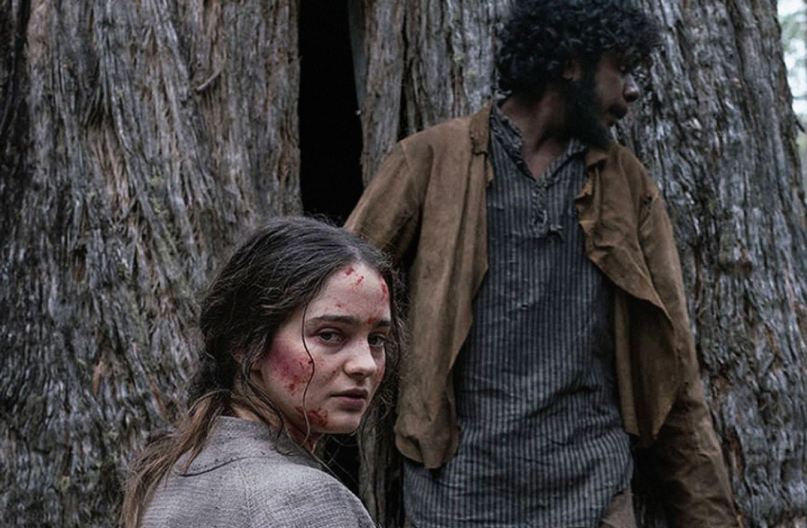
Set in Australia in 1825, the film follows a young Irish convict, Clare (Aisling Franciosi), on her mission of revenge through the Tasmanian wilderness. She’s chasing after the British officer (Sam Claflin) who brutally raped her and committed great violence against her family. Clare enlists the help of Billy (Baykali Ganambarr), an aboriginal man, as her guide.
This is only Kent’s second film, but she’s already proven herself as a master craftsman after her feature debut, The Babadook. The Nightingale takes after her first feature: it’s so carefully composed and richly atmospheric, it’s chilling to the bone even if it’s not explicitly a horror film. But you can see Kent’s horror roots in the film’s harrowing dream sequences, in which Clare is surrounded by a dark abyss and sees faces looming from the shadows. Kent has a way of shooting these scenes so they don’t feel tacky or cliche, but, instead, genuinely horrifying and earned. It’s in the atypical way she moves her camera and the strange and unexpected details in the sound design, which invoke a deeply etched sense of dread and disorientation. Horror is all about the fear of the unknown, and Kent’s way of putting us into Clare’s confusion and isolation make these sequences all the more terrifying. — OS
Further listening: Listen to our in-depth podcast on the film with special guest Joe Lipsett here.
Where to watch: The Nightingale is currently playing in theaters in the US. Plans for a Canadian and UK release are still TBA.
6. Giant Little Ones (dir. Keith Behrman)
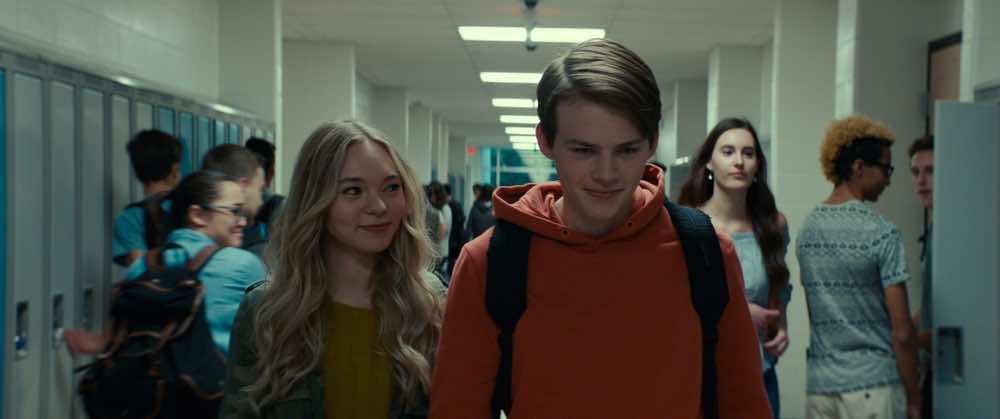
17-year-old Franky (Josh Wiggins) occupies a comfortable in-between of high school life. He’s well-liked but far from the centre of attention. He watches a gay kid on his swim team get bullied, looking guilty yet doing nothing because he’s safe as he is: sensitive and quiet, yet adept at fitting in with a group of bros. Life is all lazy days in school classrooms, happy and aimless bike rides through suburban streets with his best friend Ballas (Darren Mann), and making out with his girlfriend on the couch. Franky appears relatively content. But about a third of the way through Keith Behrman’s Giant Little Ones, something happens that changes everything.
What unfolds is one of the most warm, thoughtful, and patient explorations of teen sexuality that the coming-of-age genre has to offer. In fact, the film flips the genre’s typical arc: most teen protagonists start out lost and eventually realise who they are. Franky starts the film pretty sure of who he is — but he learns to open himself up to not knowing. It’s a beautiful notion that ought to be espoused more often, and chiefly, it’s delivered here in a highly entertaining package, fit with a great soundtrack, compelling characters, and one unforgettable dick joke. — OS
Further reading: Our interview with writer-director Behrman appears in our ebook The 2019 Canadian Cinema Yearbook which you can pre-order here.
We also discuss the film on our Best of 2018 Canadian Cinema podcast here.
Where to watch: Hoopla (Canada, US) and VOD (iTunes, YouTube, etc.) in the US and Canada. No UK distributor.
5. Sergio & Sergei (dir. Ernesto Daranas Serrano)
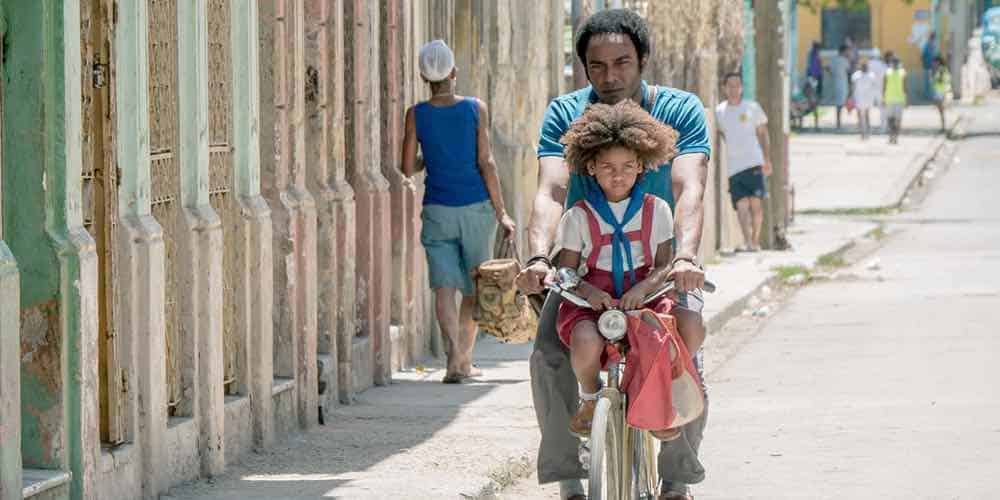
One of this year’s true hidden gems, Sergio & Sergei is a warm comedy about connecting across borders and a critique of totalitarian regimes. Sergio is a Marxist Philosophy Professor in Havana and a ham radio enthusiast. Just as the USSR is dissolving, he unexpectedly makes radio contact with Sergei, the only cosmonaut still on the Russian Space Station MIR, and they become friends. Both suddenly find themselves isolated from the rest of the world: Cuba has lost its closest ally while Sergei finds the borders on the ground have changed in ways that seem arbitrary from outer space. Meanwhile, Cuban government agents are eavesdropping on Sergio’s transmissions when they discover he not only has an American friend (an Apollo conspiracy theorist) but a Russian one — at this time in politics! Hilarity ensues, but director Ernesto Daranas Serrano pays close attention to how political events impact day-to-day lives, focusing on the humanity of his characters and the importance of their relationships. It’s a crowd-pleasing delight. – AH
Further listening: Our in-depth podcast discussion on the film will be released on Monday. In the meantime, subscribe to the Seventh Row podcast.
Where to watch: Rent on VOD in the US on Amazon or iTunes.
4. Wild Nights with Emily (dir. Madeleine Olnek)
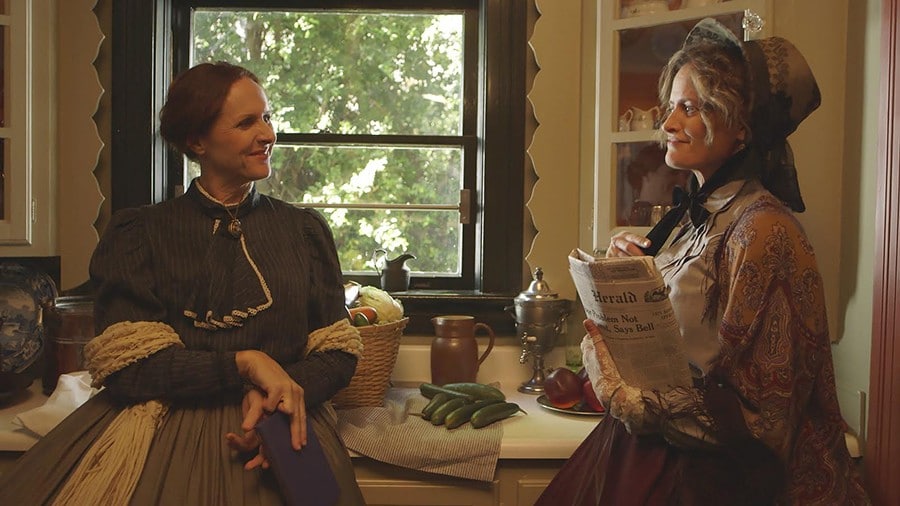
In the last few years, Emily Dickinson has suddenly become a major preoccupation of filmmakers. Despite being a beloved poet, her life had never been depicted on screen — until Terence Davies’ 2016 Dickinson biopic, A Quiet Passion, which we explored in a Special Issue. Since then, we’ve had the (in my mind superior) Wild Nights with Emily, and a TV series starring Hailee Steinfeld is on its way. There seems to be something about Dickinson’s reclusive but brilliant life that speaks to the here and now. Perhaps, in a time of increased affirmative action for women in the creative arts, we’re attracted to the tragedy of a genius woman whose work wasn’t appreciated until after her death.
Wids Nights, unlike A Quiet Passion, acknowledges the overwhelming evidence that Dickinson (here played by Molly Shannon) was a queer woman. Restored letters reveal that she and her brother’s wife were lovers for decades. Dickinson is often portrayed as a staid, antisocial woman who rarely left the solitude of her room. However, director Madeleine Olnek attempts to rewrite this narrative. Her Dickinson is full of life: she’s prickly, but also funny and, of course, gloriously intelligent — all is true of Olnek’s film, too. Although it is carefully period accurate, the film feels more modern than Davies’, perhaps due to its frank approach to its central queer relationship. Dickinson and her lover’s relationship is not depicted demurely or treated as transgressive. They’ve been together for decades, so they speak to each other and touch each other with the casual familiarity of any married couple. Crucially, the film doesn’t turn Dickinson into a purely tragic figure, focusing on the relationship that brought joy to her life.
Where to watch: The film was released in the US and Canada this summer and will be available on VOD soon.
3. The Souvenir (dir. Joanna Hogg)
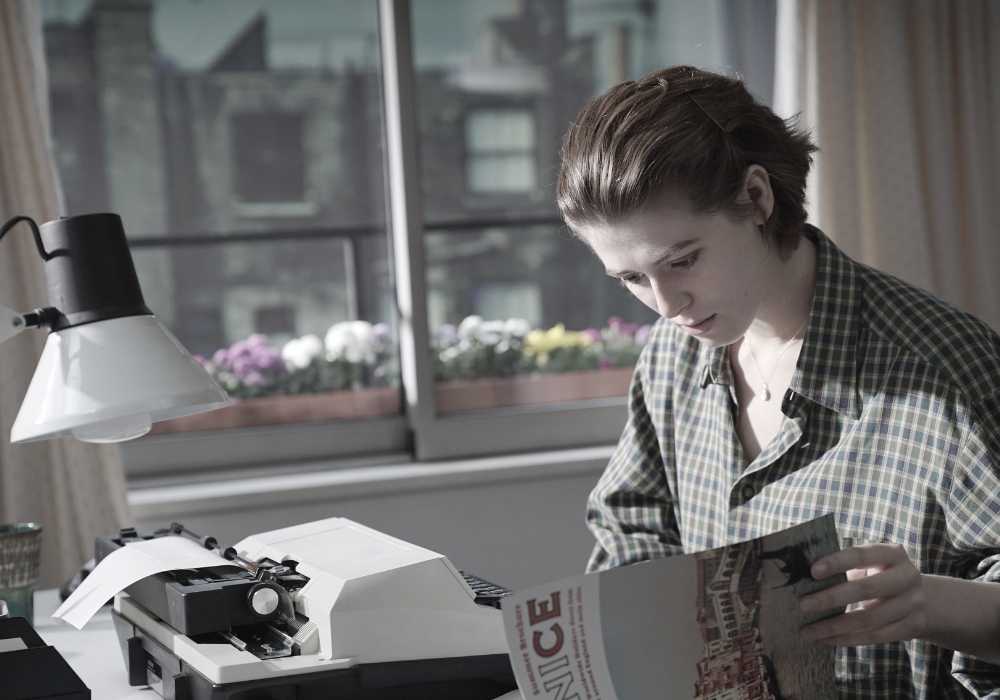
2019 was the year that Joanna Hogg finally ‘broke out.’ The British director has been making brilliant films about the British upper classes for over a decade, starting with Unrelated (2007) through to Archipelago (2010) and Exhibition (2013). Each skewers the privileged, narcissistic behaviour of posh Brits in a hilarious, cringe-worthy way, while always keeping the humanity of the characters in mind.
It makes sense that The Souvenir is Hogg’s most popular film to date as it’s also her most personal, and therefore, her least scathing and most forgiving. Honor Swinton-Byrne plays Julie, a fictionalised version of Hogg when she was a film student in 1980s London. It’s a retelling of Hogg’s turbulent relationship with a heroin addict (Tom Burke), exploring how it shaped her as a filmmaker and as a person. The film beautifully tracks Julie’s growing confidence and her self-actualisation; Hogg’s signature precise framing has never been a more effective cinematic tool, with Julie drifting further toward centre frame as her story progresses.
The Souvenir is a meticulous piece of work worthy of the discussion and dissection its been getting since its Sundance premiere. Our contribution to that dialogue is our recent ebook, Tour of memories: The creative process behind Joanna Hogg’s The Souvenir. This is the first book ever dedicated solely to Hogg’s work — and it’s about time. There’s so much to learn from her razor-sharp filmmaking: her improvisational process of finding the characters during the shoot is fascinating and unique, and it’s all uncovered in our interviews with Hogg’s entire creative team. They discuss what makes The Souvenir so special.
Further reading: Get your copy of our ebook on the film, Tour of Memories: The Creative Process Behind Joanna Hogg’s The Souvenir.
Where to watch: Available on VOD (iTunes, etc.) in the US and Canada, on Amazon Prime in the US, and will be released in the UK in cinemas and on VOD on Aug. 30.
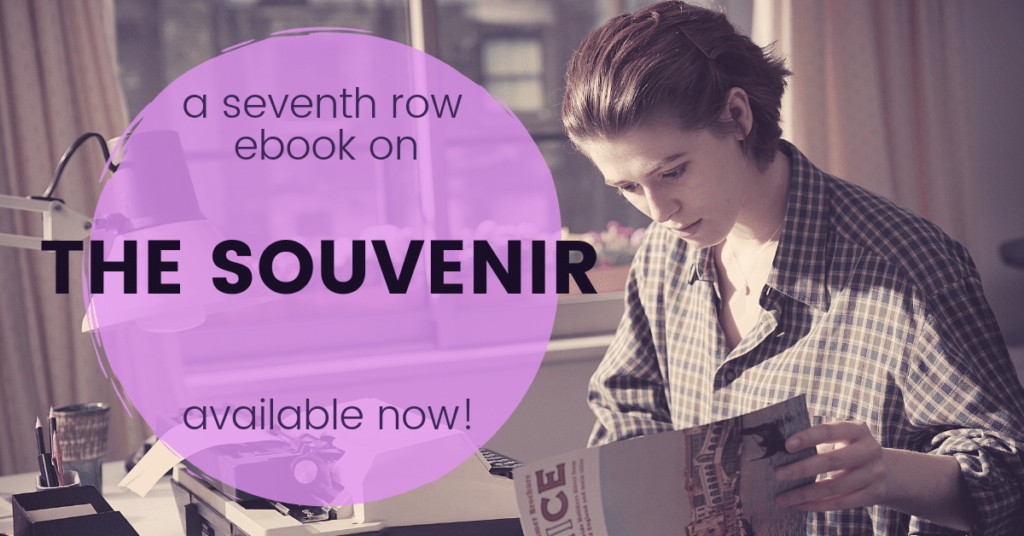
2. Peterloo (dir. Mike Leigh)
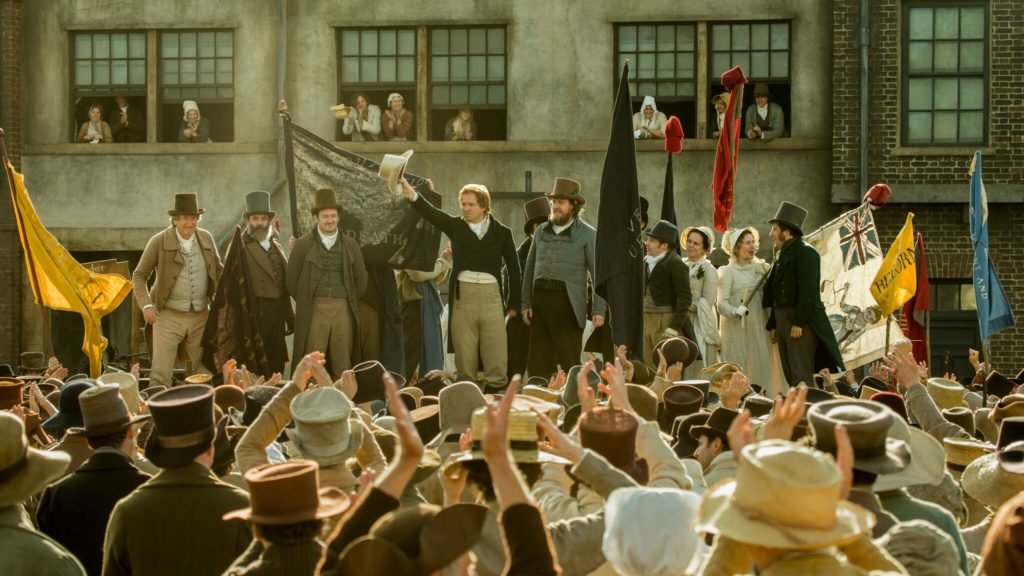
Mike Leigh’s Peterloo is a rare story about the fight for a fairer democracy: one of carnage rather than triumph, one that ends with tragedy and unfinished labour rather than success and social change. In other words, despite its broad canvas, including more than a hundred characters acting out historical events, Peterloo is every bit a Mike Leigh film: peppered with flawed, complicated characters, inspirational because it is a story of recognizable people, and nothing like the silk-swishing period pieces that are the staple of British cinema.
Peterloo is a story of grassroots political organizing, of political change as the product of many individuals pulling together. Leigh introduces two distinctive groups — the ruling upper classes and the working classes — as a means of offering insight into two opposing worldviews. The authoritarian upper classes suffer from a sort of groupthink. They are uniform in opinion, perspective, and even dress. By contrast, the working classes (including those same soldiers, who have now come home) are strongly individuated and organize themselves in an inherently democratic fashion. As a group, the activists are united in working toward the same goal, but they are still not afraid to disagree. By showing us all the moving pieces in this movement, Leigh emphasizes the collective organizing that went into bringing it to life.
In Leigh’s script, the heroes of the war who lived through Waterloo survive only to be killed at Peterloo by the country they were fighting for. Yet the film ends not with the massacre, but with the seeds of what it will lead to. Despite the tragedy of Peterloo, I left the theatre invigorated about not just the need for change, but the feeling that spurring that change is something accessible to all of us.
Further reading: Get your copy of our ebook on the film and Mike Leigh’s process, Peterloo in Process: A Mike Leigh Collaboration, here.
Where to watch: Stream on Amazon Prime in the US and UK; VOD in Canada, US, UK.
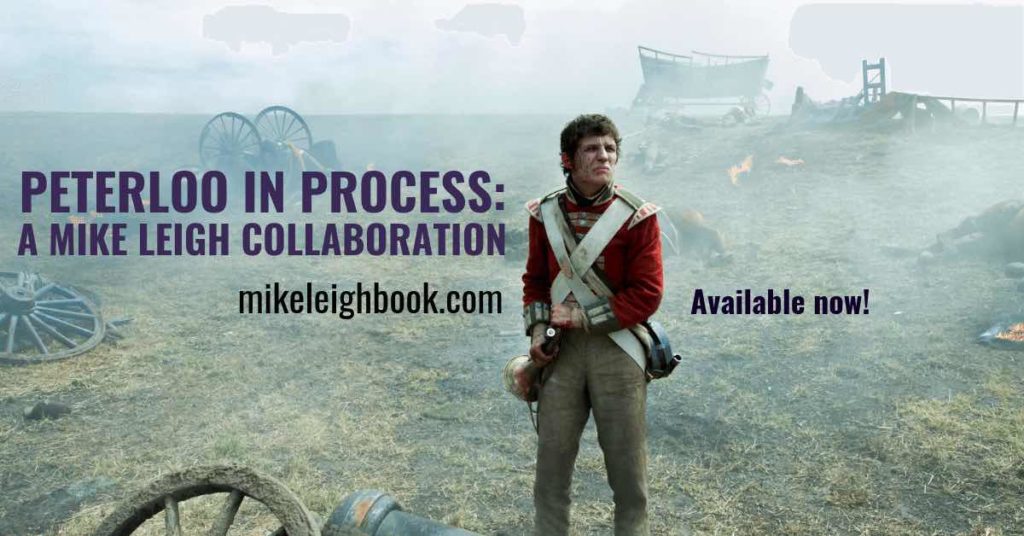
1. Mouthpiece (dir. Patricia Rozema)
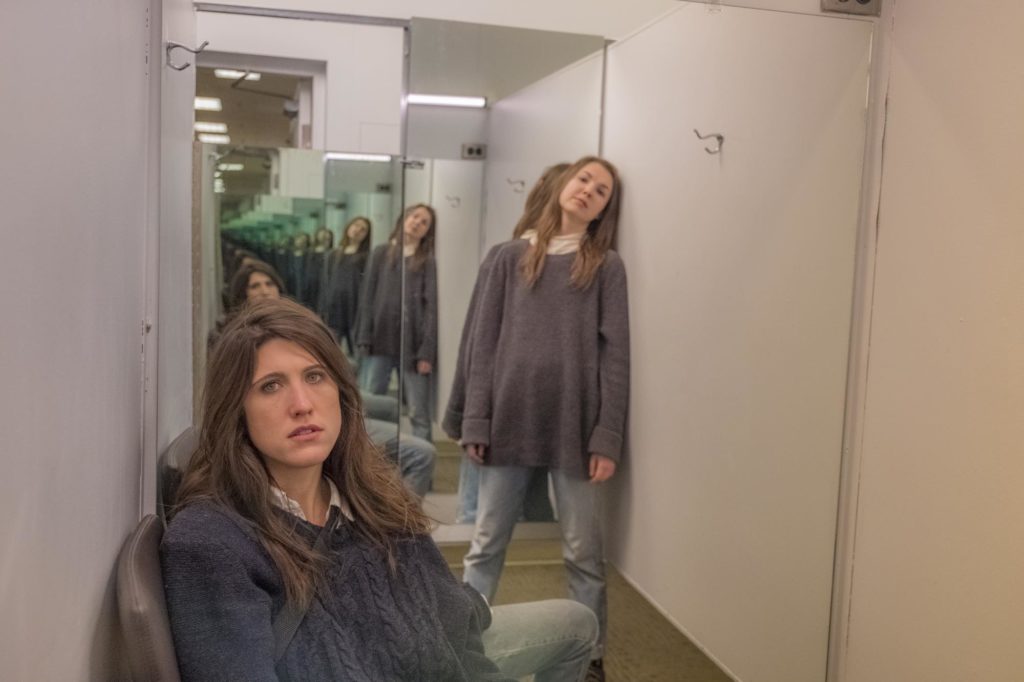
The best movie of the year, Mouthpiece, is Canadian, set in Toronto, and written and directed by women and about women. Director Patricia Rozema (Mansfield Park, I’ve Heard the Mermaids Singing) — in collaboration with Toronto theatremakers-actors-writers Amy Nostbakken and Norah Sadava — has effortlessly adapted a piece of physical theatre into a naturalistic film that gets up close and intimate with the characters. The film’s innovative conceit is that the main character, thirty-something Torontonian Cassandra, is simultaneously played by two actors, Nostbakken and Sadava. This dual performance, where the actors sometimes mirror each other and sometimes diverge or even conflict, allows them to represent two sides of a complex woman who is constantly in conflict with herself. It’s a meditation on the things we think and the things we do, and how they can be contradictions, how every moment is charged with multiple emotions.
Set over the course of a couple of days in the dead of winter, Cassandra grieves the unexpected death of her mother (Toronto theatre treasure Maev Beaty), as she tries to write the eulogy. It’s made even more difficult for her because her last interaction with her mother was a nasty fight, and their relationship was always tense: Cassandra both worshiped her mother and was frustrated by her because she was unable to see her own worth and meet her own potential. As Cassandra grieves, she also goes through an existential feminist crisis, realising that so many of her choices have been a reaction to or rebellion against her mother; it goes so deep she doesn’t even know where the rebellion ends and she begins. – AH
Further reading: Our interview with Rozema, Nostbakken, and Sadava appears in our ebook The 2019 Canadian Cinema Yearbook, which you can pre-order here.
Further listening: We discussed the film in depth on our podcast with special guest Laura Anne Harris here.
Where to watch: Mouthpiece will be available on VOD in Canada on September 3, and in the US on November 11.
Honourable mention: Transit
Since Christian Petzold’s Transit was released in 2018 in Canada, it was on our Best Films of 2018 list.
Listen to our podcast on the film here. Read Elena Lazic’s interview with Petzold on the film here.

